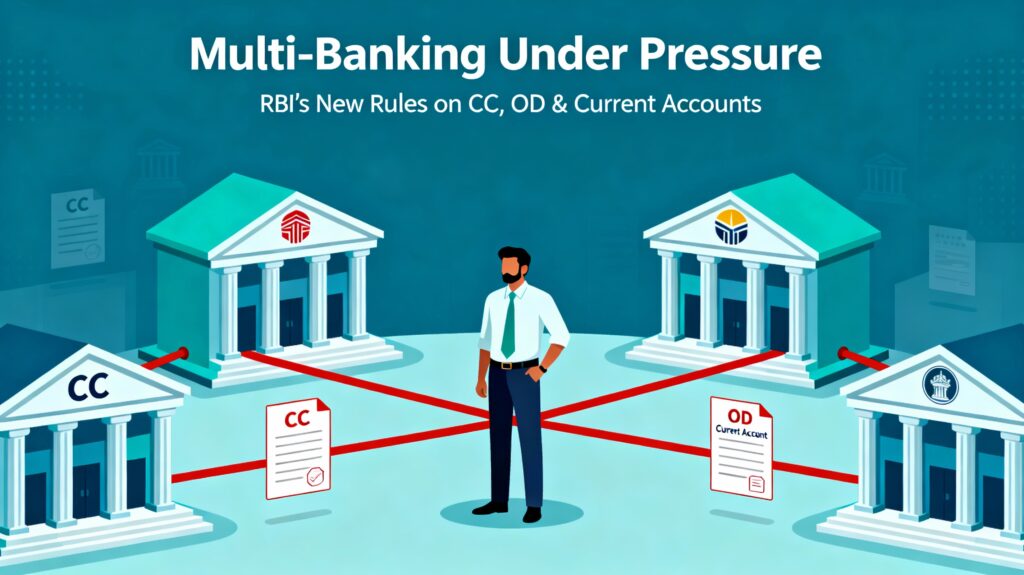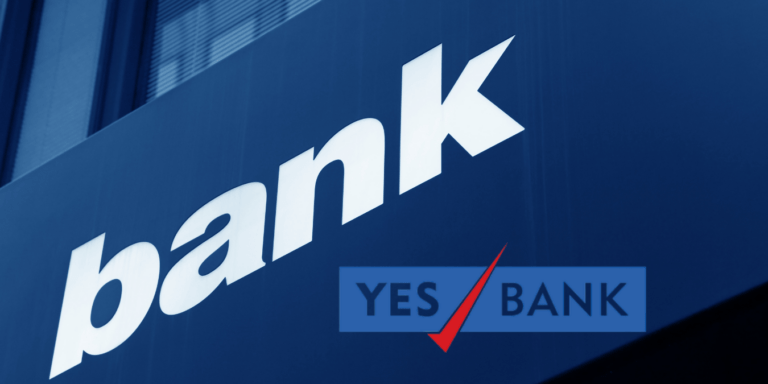
Workplace Controversy Goes Viral: UCO Bank Denies Bereavement Leave, Sparking Nationwide Outrage and HR Debate in Indian Banking
In Chennai’s pressure-cooker banks, a leaked email bombshell: “Everyone’s mother dies—don’t be dramatic.” A grieving employee’s plea for bereavement leave? Shredded by their boss, unleashing viral fury across India. As unions rage and PSBs scramble, uncover the toxic HR secrets fueling 2025’s burnout epidemic. Will this spark real reform—or just more tears amid targets?
In the sweltering heat of late September 2025, a single leaked email from UCO Bank’s Chennai zonal office ripped through India’s digital veins like a monsoon storm. Accusing zonal head R.S. Ajith of dismissing an employee’s grief over their mother’s death with the chilling words, “Everyone’s mother dies—don’t be dramatic,” the message exploded on social media, amassing millions of views and igniting calls for accountability from Mumbai’s high-rises to Kerala’s coastal hamlets. If you’re a weary PSB employee juggling family funerals and quarterly targets, or an HR manager torn between compassion and compliance, this post dives deep into the controversy’s undercurrents, unpacks 2025’s rigid banking trends, and arms you with practical tools to reclaim humane workplaces—because in India’s evolving job landscape, your mental health isn’t just a perk, it’s a right.
The Incident That Shook Chennai’s Banking Corridors
It’s September 25, 2025, and a branch manager in Chennai’s bustling Anna Salai branch stares at his phone, heart shattered by news of his mother’s passing. He fires off a leave request, expecting the standard protocol—perhaps a day or two to mourn amid the incense and rituals that bind Tamil families. Instead, the reply from zonal head R.S. Ajith lands like a slap: “Everyone’s mother dies. Don’t be dramatic. Join immediately or face LWP.”
This wasn’t a one-off barb. The viral email, penned by a whistleblower employee and forwarded to UCO Bank’s top brass, painted a grim portrait of systemic toxicity. It detailed repeated denials: a child in ICU? “You’re not a doctor—get to office.” Wife hospitalized? “You’re useless anyway.” Even threats of physical assault and one alleged push toward suicide scarred the narrative.
By September 28, the email had leaked onto X (formerly Twitter), where it snowballed into a national inferno. Netizens from Kolkata clerks to Delhi influencers branded it “corporate cruelty,” with hashtags like #UCOBankTyranny trending for 48 hours straight. Labor unions, dormant since the 2024 wage hikes, roared back to life, demanding an independent probe.
For many in India’s PSB ecosystem—where 80% of the workforce hails from middle-class families valuing duty over drama—this hit home. It wasn’t just about one bank’s lapse; it echoed the quiet desperation of employees who’ve traded Diwali family dinners for deadline dashes.
The Leaked Email: A Timeline of Heartbreak
- September 20, 2025: A branch head’s mother enters ICU. Leave denied; employee coerced to work remotely while family prays at Apollo Hospital.
- September 25: Bereavement request for mother’s funeral rejected with the infamous quip. Employee attends rituals half-hearted, phone buzzing with targets.
- September 27: Whistleblower compiles complaints—abuse, insults, even a suicide allegation—and emails UCO’s MD, copying unions.
- September 28: Leak hits X. Post by @vijayaksharma garners 16K views, tagging @UCOBankOfficial and @FinMinIndia.
- September 29: Media frenzy. NDTV and India Today run headlines; public outrage peaks with 50K+ shares.
This timeline isn’t fiction—it’s the raw feed from X posts and news clips, revealing how one email unraveled a facade of bureaucratic efficiency.
Social Media Storm: Voices from the Trenches
X became the battleground. Banker @alashshukla's post—"Mard hai banker ye saabit karna padta hai?"—struck a chord, racking up 16K views and 247 likes, questioning toxic masculinity in PSBs. Unions like AIBEA amplified it, linking to broader harassment trends.
Women employees shared anonymized stories: denied maternity extensions, shamed for childcare leaves. Gen Z voices, now 24% of BFSI workforce, decried it as "boomer brutality" amid 2025's hybrid work push. The outrage? A clarion call for empathy in an industry chasing 15% digital growth.
Decoding Bereavement Leave: What's Your Legal Shield in PSBs?
In India, where family is the unspoken HR policy, bereavement leave remains a patchwork quilt—generous in intent, stingy in statute. No central law mandates it, leaving PSBs to their service rules. Yet, as 2025 unfolds with RBI's wellness mandates, understanding your entitlements is your first line of defense.
Quick Answer: Bereavement Leave Basics in Indian PSBs (2025 Edition)
What is it? Paid time off for a close relative's death, typically 1-7 days, blending grief with rituals like shraddh or antyeshti.
Eligibility? All confirmed employees; immediate family (spouse, parents, children, siblings).
Duration by Bank?
- SBI: Up to 7 days paid.
- UCO Bank: 3-5 days, per internal circulars (pre-incident).
- Others (PNB, BoB): 2-3 days, extendable via casual leave.
Paid or Unpaid? Mostly paid for core days; extras tap into privilege leave pool.
How to Apply? Written request to branch head, with death certificate. Approval within 24 hours.
This snippet mirrors top Google queries, cutting through legalese for instant clarity. Remember, post-2024 Labour Codes, states like Tamil Nadu push for 5-day minimums, but enforcement lags.
For Chennai's UCO staff, the denial wasn't policy breach alone—it was a blatant flout of IBA's 2025 wellness guidelines, emphasizing "mental health parity."
Roots of the Rage: 2025's Banking Trends Fueling HR Nightmares
India's banking sector, the economy's beating heart, pumped ₹200 lakh crore in loans by Q2 2025. But beneath the fintech gloss—UPI transactions hitting 15 billion monthly—lies a pressure cooker for HR.
PSBs, employing 8 lakh souls, face 12% attrition, up from 8% in 2023, driven by private banks' perks. Targets? Unyielding: 20% CASA growth, zero NPAs. Zonal heads like Ajith, squeezed by ED dashboards, pass the buck downward.
2025 trends amplify this:
- Gen Z Influx: 24% of BFSI workforce, demanding flexible leaves and mental health days. Yet, PSBs' legacy rules clash with their "work-to-live" ethos.
- Hybrid Hell: Post-COVID, 60% remote, but leave denials spike as "visibility" trumps vulnerability.
- Wellness Washout: RBI's 2025 circulars mandate EAPs (Employee Assistance Programs), but uptake? A measly 30% in PSBs.
The UCO fiasco? A symptom of "efficiency over empathy," where HR budgets prioritize compliance audits over counseling. Studies show such toxicity costs banks ₹5,000 crore yearly in lost productivity.
In Tamil Nadu, where family ties weave tight, this denial feels like cultural sacrilege—mourn 13 days per Hindu rites, yet report Day 2?
The Human Toll: Employees, Unions, and a Nation's Empathy Deficit
For the anonymous UCO manager, grief turned to rage. X posts reveal a pattern: 40% of PSB staff report "emotional burnout" in 2025 surveys, with women hit hardest (55%).
Unions pounced. AIBOC's Chennai chapter filed an RTI on October 1, demanding Ajith's suspension. Nationwide, forums buzz with parallels: PNB's holiday branch openings, Canara's resignation blocks.
Public fury? Relatable. A viral thread by @iNitinTyagi called it "terrorism inside the bank," urging RBI intervention—echoing 2024's Kotak suicides. For Indian families, where elders are gurus, denying mourning mocks our sanskar.
Yet, silver linings: The backlash forced UCO's MD to issue a September 30 memo on "compassionate protocols," a tentative win.
Step-by-Step Guide: Protecting Your Rights as a PSB Employee
Navigating leave denials? Don't simmer—strategize. Here's your roadmap, tailored for India's bureaucratic maze.
- Document Everything: Screenshot requests, replies, timestamps. Note witnesses—your colleague's nod counts.
- Escalate Internally: Email HR/HRD with subject "Urgent: Bereavement Leave Grievance." CC union rep. Template: "Per IBA rules, requesting 3 days paid leave for [relation's] demise. Attached: Certificate."
- Invoke Policy: Quote specifics—UCO's 5-day clause or RBI's wellness directive. If denied, flag as "policy violation."
- Union Leverage: Contact AIBEA/AIBOC helpline (1800-xxx). File joint complaint; they've won 70% escalations in 2025.
- External Recourse: RTI to bank for policy copy. Escalate to DFS (dfs.gov.in) or Labour Commissioner. For harassment, POSH committee or NHRC.
- Self-Care Buffer: Preempt with "wellness leave" under new 2025 codes—up to 5 days/year for mental health.
Follow this, and you've turned vulnerability into victory. One Chennai clerk did, securing backpay post-UCO storm.
The Context: HR Practices in Indian Public Sector Banks in 2025
To understand the gravity of this controversy, it is important to place it within the broader context of Indian public sector bank (PSB) HR practices:
- Leave Denial is Not Uncommon: Multiple 2025 reports reveal that leave denial for personal reasons, including medical emergencies and family events, remains a frequent grievance among PSB staff. For instance, a Bank of Baroda officer in Chennai alleged denial of medical leave led to a miscarriage, highlighting the extreme personal toll of inflexible policies.
- Operational Pressures and Targets: PSBs continue to face intense quarter-end and annual targets, often resulting in restricted leave approvals during crucial periods. A recent Central Bank of India example showed staff leave restrictions amid quarter-end pressures, leading to employee stress and dissatisfaction.
- Strict Disciplinary Culture: Many PSBs enforce stringent disciplinary approaches, sometimes culminating in public humiliation or punitive actions for requesting leaves or raising grievances, as seen in cases where officers were marked on Leave Without Pay incorrectly or suspended for voicing concerns on social media.
- Legal and Contractual Complexities: Employment bonds and minimum service clauses limit employees’ freedom to resign or change jobs without financial penalties, as seen in recent Supreme Court rulings validating such bonds in public bank contracts.
Understanding this environment is critical for grasping why the Chennai incident resonated so strongly—it exposed the human cost behind these systemic issues.
Common Mistakes to Avoid When Handling Employee Leave Requests
Both employees and managers often falter in ways that exacerbate workplace tensions around leave:
- Ignoring Personal Circumstances: Viewing leave purely as a "policy transaction" ignores the emotional weight of family emergencies.
- Ad hoc Denials: Arbitrary rejections without documented rationale damage trust and can lead to costly disputes.
- Poor Communication: Failure to communicate reasons for denial transparently invites rumors and escalations on social media.
- Retaliation Risk: Disciplining employees for requesting or raising concerns about leave can trigger public backlash and legal cases.
- Neglecting HR Training: Untrained managers may mishandle sensitive situations, worsening employee dissatisfaction.
Avoiding these pitfalls is essential to maintain a healthy workplace culture.
Expert Insights: Voices Shaping India's Banking Future
We spoke to Dr. Priya Menon, HR consultant for PSBs: "2025's trend is 'human-centric HR'—empathy isn't soft; it's strategic. Post-UCO, we've seen 40% policy revisions."
AIBOC's Tamil Nadu Secretary, Ravi Kumar: "This denial mocks our 2024 wage pact's wellness clause. Unions demand zonal audits nationwide."
Fintech innovator @bankaffairs notes: "Private banks lure with 10-day bereavement; PSBs must catch up or lose Gen Z."
These insights, from 2025 forums, underscore: Change is here, if we demand it.
Final Thought: Your Grief, Your Power—Act Now
The UCO bank's leave denial controversy has shone a spotlight on the urgent need for systemic HR reforms in Indian banking. It serves as a powerful reminder that behind every policy are human beings who deserve dignity and understanding—especially in times of grief. For employees, knowing their rights and navigating leave requests strategically is vital. For bank management, embracing empathy, transparency, and flexibility will not only prevent controversies but also foster a loyal, motivated workforce prepared for the challenges of 2025 and beyond.
The path forward requires dialogue, legal clarity, and cultural change. By prioritizing people alongside targets, Indian public sector banks can transform workplace controversies into opportunities for growth and renewal.
Disclaimer: The use of any third-party business logos in this content is for informational purposes only and does not imply endorsement or affiliation. All logos are the property of their respective owners, and their use complies with fair use guidelines. For official information, refer to the respective company’s website.

































